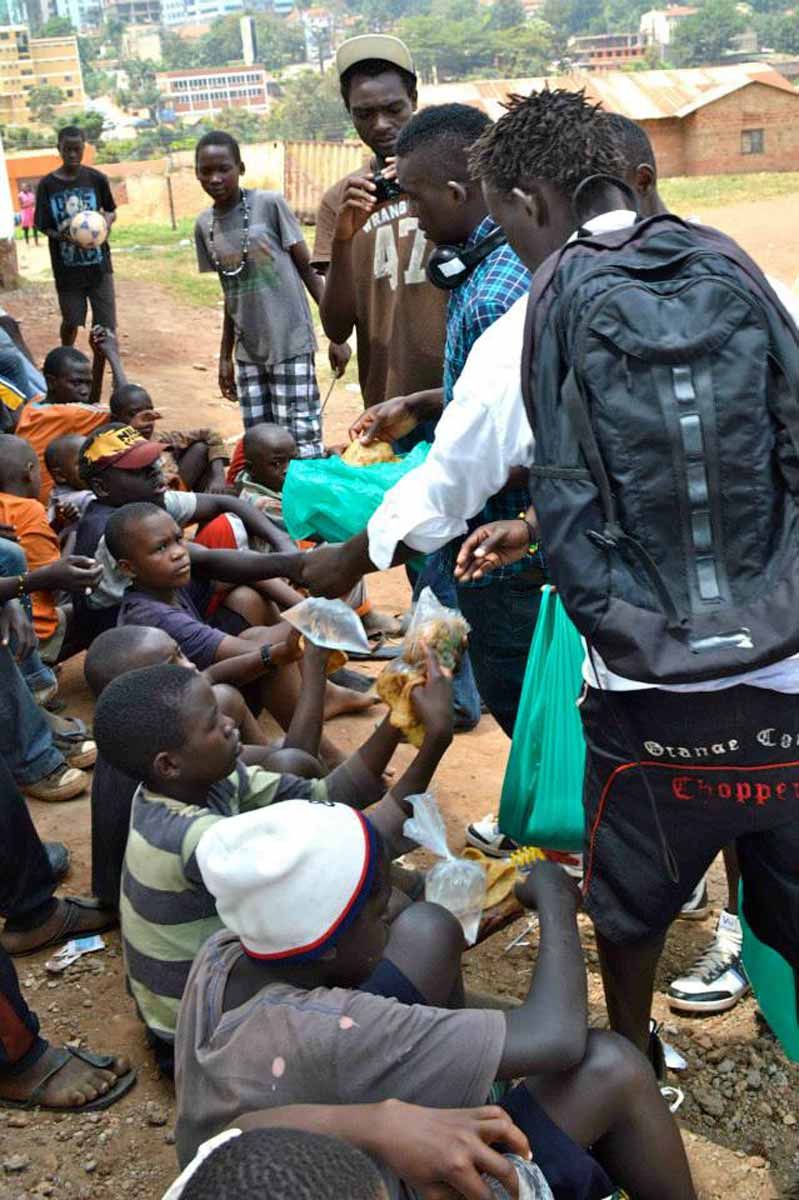Frequently Asked Questions
In Uganda, being a street kid is one of the worst things anyone could be. No one wants them around and they are treated worse than trash. They are frequently beaten and abused by almost everyone, including the police, simply because they are on the streets. They are regarded as disposable and people prefer to deal with them in extremes; pretend they do not exist or beat them to death.
Recently, a boy name Patrick was chased and “fell” on a metal pipe that killed him. Even when they make great strides to improve their lives or come into a home, the minute they make a mistake, people often say, “Well, he is a street kid.”
While on the streets, the boys are abused daily by community members, the police, and boys that are bigger than them. They do not have a safe place to sleep, and often go hungry. In order to survive, they must wake up very early in the morning to begin a daily struggle of searching for scrap metal or plastic to sell.
One kg (2.2 lbs) of metal yields just 25¢, and one kg of plastic yields only 10¢. A small meal will cost them at least 50¢, so they will need to find more than 5 lbs of wires, nuts and bolts or 10 lbs of empty plastic bottles in order to eat one meal. After a long day of searching through garbage (barefoot), the boys might have enough left to pay for a night to sleep in a 4’ x 10’ room with 20 to 30 other boys.
They sleep sitting up because it is usually too crowded to lay down. If they can’t afford a room, they sleep outside and risk being arrested. If they manage to avoid the police, they are still vulnerable to bad weather, abuse and theft.
While living on the streets, the boys do not have access to clean water and as a result are constantly getting sick with Typhoid Fever. Since they don’t sleep with a mosquito net, they are always getting malaria. Because they don’t always have food to eat, it is almost impossible to effectively take either medication. This results in frequent relapses, each time a little bit worse.
When the boys want to bathe, they must do so out in the open, in a canal that runs through the slum. There is a pipe that brings water in and the boys will bathe there and wash their clothes, if they have an extra change of clothes. If not they remain dirty which causes their wounds, which started from a small scratch from scrap metal, to turn into large infected wounds that take forever to heal.
One of the worst effects of living on the streets is the boys lose hope. The boys live each day just trying to make it through. They have no hope for a different life or for a future. They start to believe that they are worthless and unlovable. Some boys completely give up trying to be different or have a better life and decide to dull their pain with drugs. Others, are so broken and hurting that they act out so much, so they can ensure that no one will ever try and get close to them again.
LOT2545 collects and maintains the following types of donor information when it is provided to us:
Contact information such as name, address, telephone number and e-mail address
Giving information
This confidential information is kept on file for IRS reporting purposes and proper data/account recording. It is only shared with staff and board members on a confidential and need-to-know basis.
We will never share, give, sell, or rent our contact or donor list with any other group or organization. We also will not email you on behalf of another organization.
We strive to maintain current and correct email newsletter lists. If at anytime, you no longer want to receive our monthly newsletter, please contact us via email or simply use the unsubscribe button at the bottom of the newsletter.
